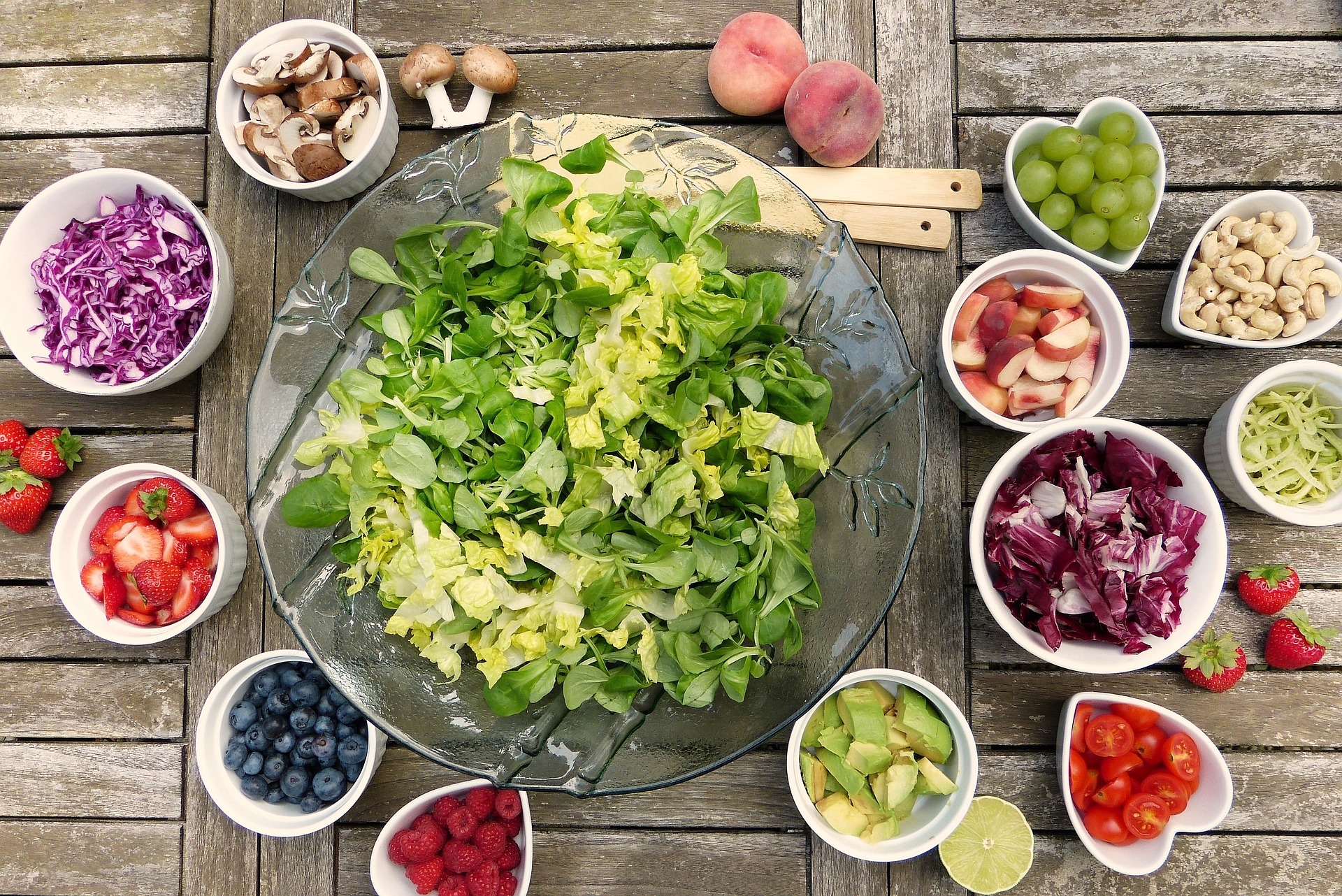HEALTHY FOODS
Eating a stable diet is important for preserving good health and wellness. A balanced diet consists of a variety of foods from different food groups that provide the necessary nutrients and energy needed to maintain good health. Some of the key components of a healthy diet include:
1.Fruits and Vegetables: These are rich in vitamins, minerals, and antioxidants and provide essential nutrients for good health. It is suggested to have at least five portions of fruits and vegetables a day.
2.Whole Grains: Whole grains are an excellent source of fibre and provide essential carbohydrates that are the body’s main source of energy. Brown rice, whole wheat bread, and oatmeal are all good examples of whole grains.
3.Proteins: Proteins are essential for building and repairing the body’s tissues. Good sources of protein include lean meat, poultry, fish, beans, and nuts.
4.Dairy Products: Dairy products are an excellent source of calcium and other important nutrients that are essential for strong bones and teeth. Milk, cheese, and yogurt are all good sources of dairy.
5.Healthy Fats: Healthy fats, such as monounsaturated and polyunsaturated fats, are important for heart health and provide energy. Good causes of healthy fats contain avocados, nuts, and olive oil.
It is important to limit the consumption of unhealthy foods, such as sugary and fatty foods, as they can lead to weight gain and other health problems. Additionally, it is important to drink plenty of water, as it helps to maintain hydration and promote good health.
In conclusion, a balanced diet that includes a variety of healthy foods from different food groups is essential for maintaining good health and wellness. Eating a diet rich in fruits and vegetables, whole grains, proteins, dairy products, and healthy fats can help to provide the necessary nutrients and energy needed to maintain a healthy lifestyle.
FAQs
1.What is the definition of healthy food?
Healthy food is typically defined as food that is rich in nutrients, low in unhealthy components such as saturated and trans fats, and free from artificial additives and preservatives. Examples of healthy foods include fruits, vegetables, whole grains, lean proteins, and healthy fats such as those found in nuts, seeds, and avocado.
2.Why is it important to eat healthy foods?
Eating a diet rich in healthy foods is important because it provides your body with the nutrients it needs to function properly. These nutrients can help improve your overall health and decrease your risk for chronic diseases such as heart disease, type 2 diabetes, and certain types of cancer. A diet rich in healthy foods can also help you maintain a healthy weight, improve your energy levels, and support a strong immune system.
3.How can I incorporate more healthy foods into my diet?
To incorporate more healthy foods into your diet, try making simple changes to your eating habits. Start by adding more fruits and vegetables to your meals and snacks, choosing whole grain options instead of processed and refined options, and incorporating lean proteins such as chicken, fish, and legumes. You can also try to limit your intake of unhealthy foods, such as processed and junk foods, and opt for healthy fats like those found in nuts, seeds, and avocado. Finally, consider seeking the advice of a registered dietician or nutritionist for personalized guidance and meal planning.
4.What are healthy foods?
Healthy foods are foods that provide the body with essential nutrients, vitamins, minerals, and fiber needed for optimal health. Examples include fruits, vegetables, whole grains, lean protein, and healthy fats.
5.Why is it important to eat healthy foods?
Eating healthy foods can help maintain a healthy weight, reduce the risk of chronic diseases such as heart disease and diabetes, improve brain function, and boost overall energy levels and mood.
6.What are some examples of healthy fruits and vegetables?
Healthy fruits and vegetables include those that are high in nutrients and fiber, such as berries, leafy greens, cruciferous vegetables (broccoli, cauliflower, etc.), citrus fruits, and sweet potatoes.

